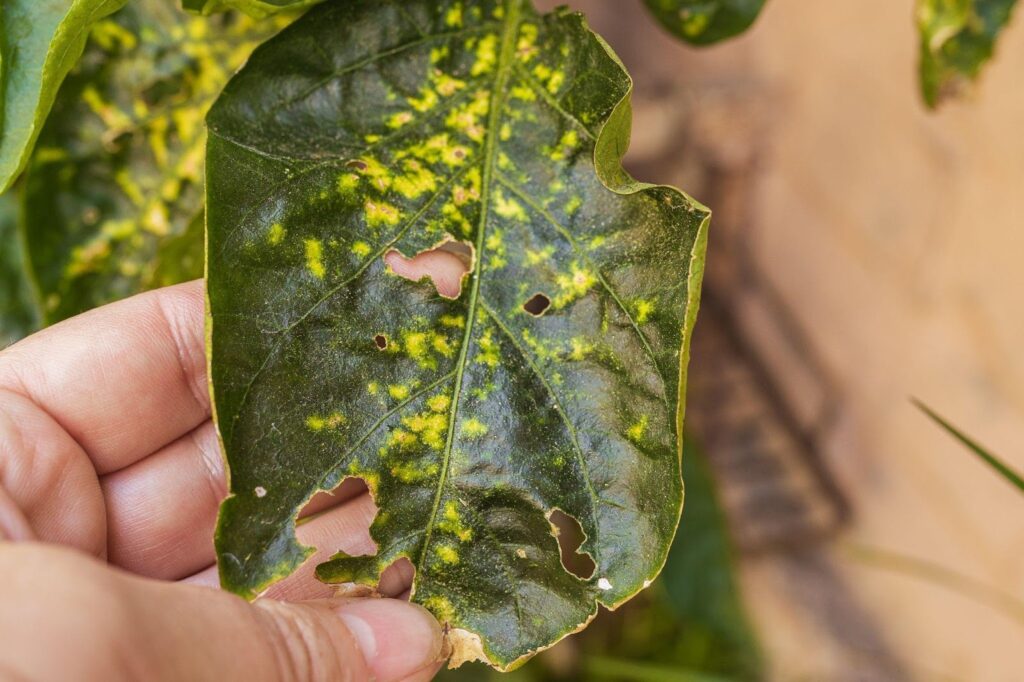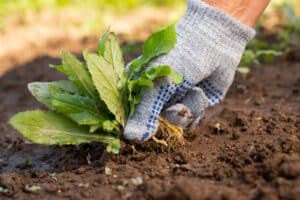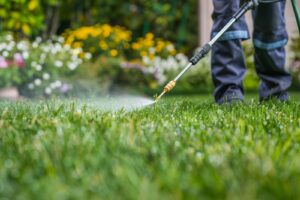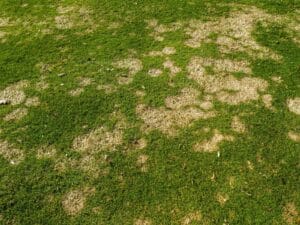Gardening in Utah combines unique challenges and rich rewards. With Utah’s arid climate, varied elevations, and distinct seasons, plants and pests flourish, making garden pest control a necessity.
Achieving a bountiful harvest in Utah means mastering pest control strategies and employing smart techniques to keep those pesky invaders at bay. This guide offers tips to protect your garden for a fruitful harvest.
Understanding common garden pests in Utah
Identifying the pests most likely to invade your garden is the first step in effective garden pest removal. Common pests in Utah gardens include aphids, spider mites, caterpillars, and grasshoppers. Each of these pests poses specific threats and requires tailored approaches for control.
- Aphids are small, soft-bodied insects that suck sap from plants, causing leaves to yellow and curl. They may also transmit plant viruses.
- Spider mites are tiny, spider-like pests that feed on the underside of leaves, creating small yellow or white spots.
- Caterpillars can devour leaves and stems quickly, causing significant damage to plants.
- Grasshoppers are notorious for their voracious appetite, capable of destroying large sections of your garden in a short time.
Natural pest control methods
Using natural methods to control garden pests helps maintain a healthy ecosystem. Beneficial insects, like ladybugs and lacewings, feed on aphids and other harmful pests. These beneficial insects may be encouraged by planting various flowers that attract them, such as marigolds and daisies.
Hand-picking pests off plants may also be effective, especially for larger insects like caterpillars and grasshoppers. Regularly inspect your garden; when you spot these pests, remove them manually. This method is labor-intensive but highly effective for small gardens.
Introducing row covers and fine mesh barriers prevents pests from reaching your plants. These physical barriers work well for keeping out caterpillars, grasshoppers, and other larger pests. Secure the covers tightly to the ground to block all entry points.
Homemade pest repellents
Creating homemade repellents using common household ingredients provides a safe and cost-effective way to manage pests. A mixture of water, dish soap, and garlic will deter aphids and spider mites. Combine one quart of water with one teaspoon of dish soap and a few crushed garlic cloves, then spray the mixture on the affected plants.
Neem oil is another natural option for garden pest removal. It works as a pesticide and fungicide, effectively repelling a wide range of pests. Mix two tablespoons of neem oil with one gallon of water and spray on your plants. This solution disrupts the life cycle of pests, preventing them from maturing and reproducing.
Companion planting
Companion planting involves growing certain plants together to enhance growth and deter pests. This technique is incredibly effective in pest-proofing your garden. For example, planting marigolds around tomatoes helps repel nematodes and aphids. Basil and parsley also protect your vegetable crops from a variety of pests.
Chives and garlic are excellent companions for roses, as they deter aphids and spider mites. By carefully planning your garden layout and incorporating companion plants, you create a natural defense system that reduces the need for chemical interventions.
Soil health and maintenance
Healthy soil is the foundation of a resilient garden. Regularly testing and adjusting your soil ensures that your plants receive the necessary nutrients to thrive. Healthy plants are less susceptible to pest infestations, making soil health a critical aspect of garden pest control.
Composting adds valuable organic matter to your soil, improving its structure and fertility. A well-maintained compost pile provides a rich source of nutrients for your plants, boosting their natural defenses against pests.
Mulching also helps retain soil moisture, suppresses weeds, and regulates soil temperature. Organic mulches like straw, wood chips, and grass clippings break down over time, adding more organic matter to the soil.
Water management
Proper watering techniques play a significant role in preventing pest problems. Overwatering creates a moist environment that attracts pests and encourages fungal diseases. Conversely, underwatering stresses plants, making them more vulnerable to pest attacks.
Water your garden early in the morning to allow moisture to evaporate throughout the day, reducing the chances of fungal growth. Use drip irrigation or soaker hoses to deliver water directly to the soil, keeping foliage dry and minimizing the risk of disease.

Regular garden maintenance
Consistent garden maintenance lets you identify and address pest problems early. Regularly remove weeds, as they may harbor pests and compete with your plants for nutrients and water. Prune dead or damaged plant material to prevent it from becoming a breeding ground for pests.
Inspect your plants frequently for signs of pest activity, such as chewed leaves, discolored spots, or stunted growth. Early detection allows for swift action, preventing minor issues from becoming major infestations.
Biological pest control
Biological pest control involves using natural predators or parasites to manage pest populations. For instance, introducing predatory insects like ladybugs, lacewings, and predatory mites effectively reduces aphid and spider mite populations.
Parasitic wasps are another excellent biological control option. These tiny wasps lay their eggs inside pest insects, eventually killing them. This method is particularly effective against caterpillars and other larval pests.
Nematodes, microscopic worms that live in the soil, may be used to target soil-dwelling pests like grubs and cutworms. These beneficial nematodes seek out and infect pests, providing long-term control.
Utilizing organic pesticides
Organic pesticides offer a safer alternative to chemical pesticides, reducing harm to beneficial insects and the environment. Pyrethrin, derived from chrysanthemum flowers, is a natural insecticide targeting many pests, including aphids, caterpillars, and beetles.
Spinosad, a soil bacterium byproduct, is effective against caterpillars, thrips, and spider mites. It’s safe for most beneficial insects and decomposes quickly, making it an eco-friendly option for garden pest control.
Diatomaceous earth, a powder made from fossilized algae, damages the exoskeletons of insects, causing them to dehydrate and die. Sprinkle it around the base of plants to create a barrier against crawling pests.
Seasonal pest control strategies
Different pests are more active during certain times of the year, requiring tailored strategies for each season. In spring, focus on preparing your garden by removing debris, applying compost, and planting early crops. This preparation helps prevent early-season pests from gaining a foothold.
During the summer, monitor your garden closely for signs of pest activity and implement control measures as needed. Use shade cloths to protect plants from intense sunlight and reduce stress that may attract pests.
In the fall, clean up your garden by removing spent plants and debris. This cleanup eliminates overwintering sites for pests, reducing their numbers the following year — plant cover crops to improve soil health and prevent erosion during the winter months.
Community involvement and education
Engaging with your local gardening community provides valuable support and knowledge. Join local gardening groups or online forums to share experiences and learn from others. Many communities offer workshops on organic gardening and pest control, providing hands-on learning opportunities.
Educating yourself about the specific pests common in your area helps you develop effective strategies for garden pest removal. Stay informed about new organic pesticides, companion planting techniques, and other innovations in garden pest control.
Professional pest control services
For severe pest infestations, professional garden pest control services offer expertise and advanced solutions. Pest control professionals can accurately identify pests, assess the extent of the infestation, and recommend the most effective treatments.
These services often include regular monitoring and maintenance, ensuring your garden remains pest-free throughout the growing season. Professional pest control services provide peace of mind, allowing you to focus on enjoying your garden and harvesting your crops.
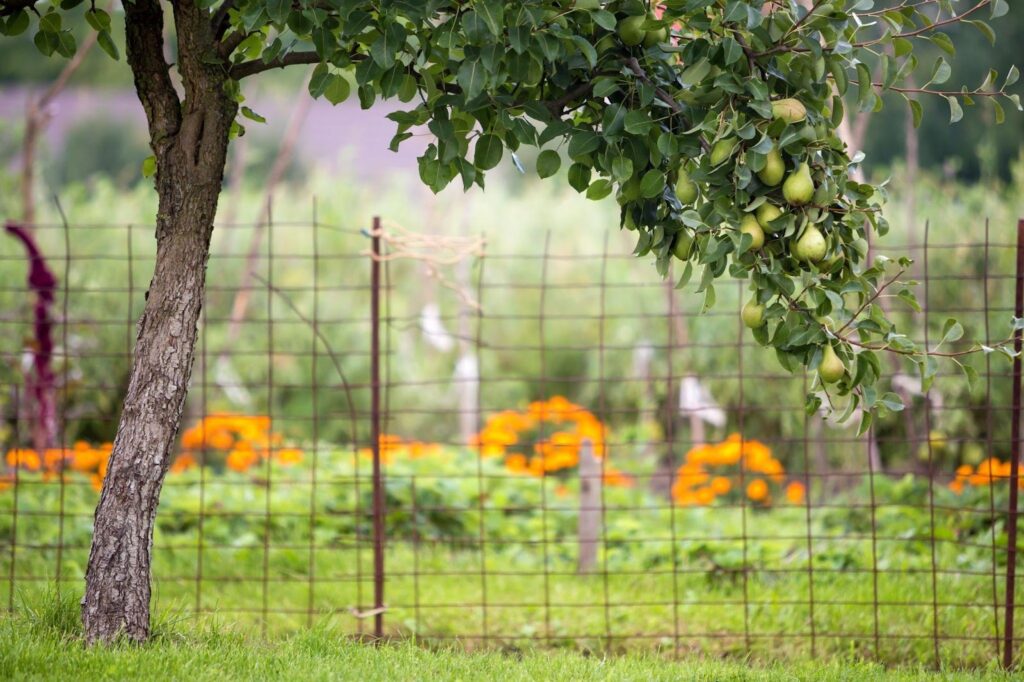
Integrating pest-proofing into garden design
Incorporating pest-proofing measures into your garden design helps create a resilient and productive space. Raised beds and containers elevate plants, making it harder for ground-dwelling pests to reach them. Install drip irrigation systems to deliver water efficiently while keeping foliage dry.
Design pathways and garden structures to facilitate easy access for maintenance and monitoring. Strategically place plants to optimize companion planting benefits and minimize pest attraction.
By integrating these design elements, you create a beautiful garden resistant to pest invasions.
Getting harvest ready
Pest-proofing your garden in Utah requires a combination of natural methods, regular maintenance, and proactive strategies. By understanding the common pests in your area and implementing effective garden pest control techniques, you will protect your plants and enjoy a bountiful harvest.
Utilize natural predators, homemade repellents, and organic pesticides to keep pests at bay. Maintain healthy soil, water wisely, and stay vigilant with regular inspections. Engage with your local gardening community and consider professional pest control services for severe infestations.
With these tips, you can create a thriving garden that provides abundant produce and satisfaction throughout the growing season. Embrace these practices and look forward to a successful harvest in Utah, free from the worries of garden pests.
Pests out of control? Call Summit Lawn and Pest Control
Don’t let seasonal changes turn your yard into a weed haven. Opt for Summit Lawn & Pest Control for top-notch weed, pest, and lawn control. Our skilled team crafts customized plans to address your unique pest problems, tackling seasonal challenges to maintain your yard’s pristine condition throughout the year.
From springtime growth spurts to winter’s stubborn invaders, we’ve got you covered. We specialize in understanding local weed patterns and pest invasions and provide advanced treatments to safeguard your property.
Don’t let pests take over your space. Contact Summit Lawn & Pest Control today and keep your garden pest-free. Peace of mind is simply a call or click away!


